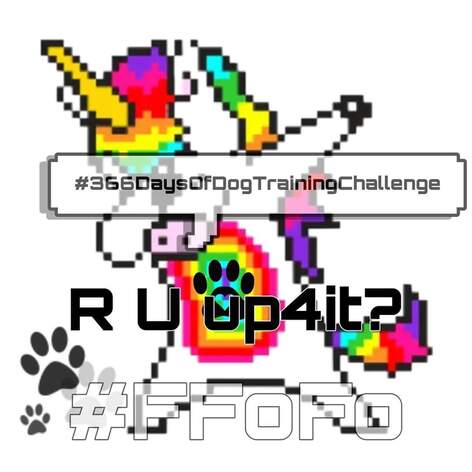|
My dog won't listen, I need to fix the behaviour now!!!
It is important to heal a dog's emotions instead of focusing on fixing their behaviour because behaviour is often a symptom of an underlying emotional issue. If a dog is exhibiting unwanted behaviour, it usually means they are feeling anxious, stressed, frustrated, or fearful. Simply correcting the behaviour without addressing the emotional root cause may lead to temporary improvement, but the underlying emotional issue will remain. This could result in the dog developing other unwanted behaviours or the original behaviour resurfacing in the future. This is also like someone correcting you for a fear of spiders or feeling anxious about a situation. It isn't humane, so it isn't right to do this to a dog. When you do this, your dog will either go into shut down, learn you are not a support system and feel that they have to escalate themselves. Leaving them in a state of learned helplessness. Healing a dog's emotions involves identifying and addressing the underlying emotional issue. This can be done through learning about healing the emotions, desensitisation and counterconditioning, creating a positive and safe environment, and providing the dog with plenty of exercise and mental stimulation. By addressing the emotional issue, the dog will naturally begin to exhibit positive and desirable behaviours. Ultimately, healing a dog's emotions not only helps them feel better and lead happier lives, but it also creates a stronger bond between the dog and you. When a dog becomes over threshold, it means that they have surpassed their threshold for stress and arousal. At this point, their emotional state has taken over, and they are no longer able to process information and respond to cues. From a holistic perspective, this can be explained by the complex interactions between a dog's physical, emotional, mental, and well-being. When a dog becomes over threshold, their sympathetic nervous system takes over, triggering the "fight or flight" response. At this point, the dog's body is flooded with stress hormones such as adrenaline and cortisol, which can impair their cognitive function, cause physical changes such as increased heart rate and blood pressure, and limit their ability to focus and learn. Their body is also becoming physically drained at this point and something not often considered or widely known is that your dog can become poorly and need medical care due to being in situations which cause their body to go through so much stress. Which is why it is so important to move away from the ideology of fixing the dog and instead healing the dog. To prevent a dog from becoming over threshold, it is important to understand their individual triggers and manage their environment and emotional state. This can involve creating a calm and predictable routine, providing plenty of exercise and mental stimulation, using positive reinforcement training methods, and avoiding situations or stimuli that are known to trigger stress and anxiety. Overall, a holistic approach to understanding and managing your dog's behaviour includes considering their physical, emotional, mental, and well-being as interconnected and vital to their overall health and happiness. By addressing all aspects of a dog's well-being, it may be possible to prevent over threshold responses and help them learn and respond to cues more effectively. Guardians, listen to your dog's communications because it is the only way to truly understand your dog's needs and emotions. Dogs communicate in a variety of ways, including body language, vocalisations, and behaviour. By paying attention to these communications, guardians can develop a deeper understanding of their dog's personality, likes and dislikes, and needs. Some common dog communication signals include tail wagging, barking, growling, displaying teeth, licking, yawning, and avoiding eye contact. For example, a dog that is wagging their tail while their ears are pressed back and their body is stiff may be communicating anxiety or fear, rather than happiness. Similarly, a dog that is growling or displaying their teeth may be communicating discomfort or aggression, rather than being "mean". By learning to read their dog's communication signals, you can better meet your dog's needs and avoid situations that may be overwhelming or stressful for your dog. This can help build a stronger bond between you and your dog, and lead to a happier and healthier relationship. Additionally, listening to a dog's communications can help reduce the risk of dog bites or other aggressive behaviours. By recognizing when a dog is uncomfortable or anxious, you can take steps to prevent a situation from escalating and avoid putting yourself, them or others in danger. In summary, listening to a dog's communications is essential for understanding their needs and emotions, building a strong and healthy relationship, and reducing the risk of unwanted behaviours. Understanding that your dog doesn't need fixing, they need healing. This is the first step in truly understanding your dog and their needs. If you work on healing your dog, the rest will follow. Image description: cream background with Wolfdog puppy asleep, held in the arms of a person with a purple hoody in the centre. To the left is a title underlined which says: fix the behaviour Underneath this is a paragraph: Fixing dog behaviour has an attitude of the dog needs "fixing" creating a negative environment and connection. Under this is a checklist with the title: Fix the behaviour why? The checklist has red crosses in each box. Bothered what others think Don't like the behaviour Don't understand the behaviour There is red underlining underneath this. To the right of the image: The title: Healing the emotion for better welfare with a checklist with green ticks reading: Healing the emotion for better welfare Understanding of species behaviour Understanding the expression of a behaviour Understanding their emotions Healing focused The final text on the bottom right reads: Identify the need of your dog and why you want to "fix" their behaviour with green underlining.
0 Comments
Leave a Reply. |
BlogFor Mutts & Mischief If you enjoy my blogs and
would like to support my work, you can support me by buying me a Coffee! Archives
July 2024
|
Or are you looking for support and would like to get to know us better?
If the answer is yes then click the image below to join my free facebook group. What is Mutts & Mischief Community?
So it is what it says on the tin! Its a community that is international of Clients and Colleagues with the most supportive and friendly people on the planet. Dog Trainers and Behaviourists from all over the world!
Why did I set up such a mammoth group?
I wanted to have a group exclusively for Clients. For support and to meet uo and build on friendships from Classes or One to Ones. I want Clients to see you are not alone with your Dog and the problem you maybe having that you are not the first and won't be the last! I wanted a safe place where Clients could trade stories good and bad in one place for free!
I also wanted a safe place for the Trainers and Behaviourists I mentor within Social Media Platforms.
Why do this for free?
Because when I say I offer an holistic service I really do. It isn't about the money it is about you and your dogs. You and your dogs are all that matter.
So I wanted to encourage people to do homework and build better quality relationships with their dogs. So 3 years ago I had a mad idea and set up the 100 days of dog training challenge. Once a day people would spend 5 minutes plus training their dog. Recording it and uploading their video onto the Community. Every participant recieved a Certificate.
What I didn't count on was how many Professionals wanted to join and how fast word would spread. So this year 2020 I set up a 366 days of dog training challenge.
We have Clients in America, Greece, Norway, Denmark and Spain. We have Trainers from Greece, Norway, Isle of Wight, America and many more Countries. As well as dog trainers and trainee behaviourists: I mentor all over the world.
So again yes this group is free. It is still primarily for clients and for people to get to know me but we also have the challenge running. Again for free. So if you want to join click the image below to be taken to the group directly. See you there!
So it is what it says on the tin! Its a community that is international of Clients and Colleagues with the most supportive and friendly people on the planet. Dog Trainers and Behaviourists from all over the world!
Why did I set up such a mammoth group?
I wanted to have a group exclusively for Clients. For support and to meet uo and build on friendships from Classes or One to Ones. I want Clients to see you are not alone with your Dog and the problem you maybe having that you are not the first and won't be the last! I wanted a safe place where Clients could trade stories good and bad in one place for free!
I also wanted a safe place for the Trainers and Behaviourists I mentor within Social Media Platforms.
Why do this for free?
Because when I say I offer an holistic service I really do. It isn't about the money it is about you and your dogs. You and your dogs are all that matter.
So I wanted to encourage people to do homework and build better quality relationships with their dogs. So 3 years ago I had a mad idea and set up the 100 days of dog training challenge. Once a day people would spend 5 minutes plus training their dog. Recording it and uploading their video onto the Community. Every participant recieved a Certificate.
What I didn't count on was how many Professionals wanted to join and how fast word would spread. So this year 2020 I set up a 366 days of dog training challenge.
We have Clients in America, Greece, Norway, Denmark and Spain. We have Trainers from Greece, Norway, Isle of Wight, America and many more Countries. As well as dog trainers and trainee behaviourists: I mentor all over the world.
So again yes this group is free. It is still primarily for clients and for people to get to know me but we also have the challenge running. Again for free. So if you want to join click the image below to be taken to the group directly. See you there!
Proudly powered by Weebly



